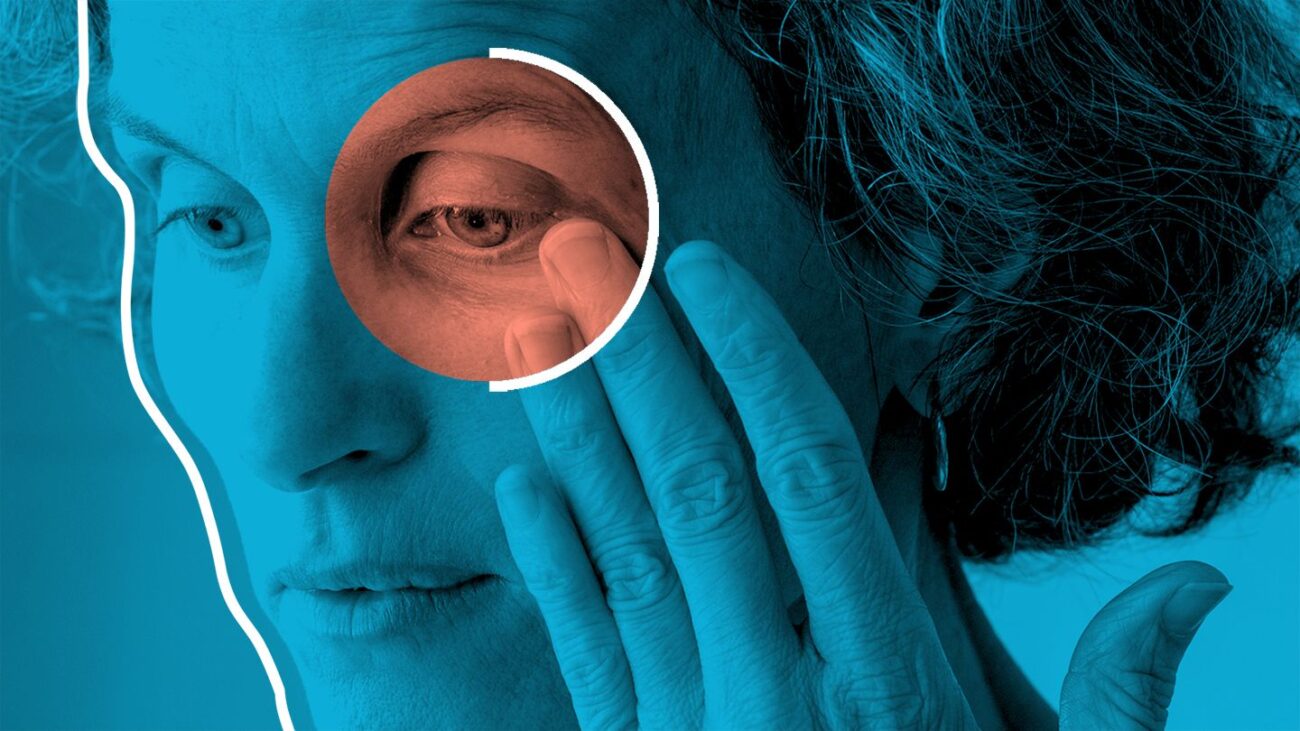Thyroid eye disease (TED), also known as Graves’ ophthalmopathy, can be a challenging and complex condition to navigate. Those affected often experience a range of symptoms, including bulging eyes, double vision, and discomfort. In recent years, a promising treatment option has emerged in the form of biological infusion therapy.
This groundbreaking approach has shown significant success in managing the symptoms of TED, offering hope to many individuals dealing with this condition. In this blog post, we will get to know about all the essential aspects of thyroid eye diseases and explore the potential benefits of biological infusion therapy. Moreover, you will also get to know about the ways to ease thyroid eye disease symptoms. So, let’s continue to learn more:
Understanding Thyroid Eye Disease
When autoantibodies attach to the thyroid and cause the body to release excessive levels of thyroid hormone, the consequence is Graves’ disease, an autoimmune disorder. Thyroid eye disease (TED) is an eye problem brought on by this illness.
When autoantibodies that attack the thyroid attach to elements inside the eye socket, the muscles and tissues around the eyes may become inflamed. For this reason, puffed eyes and half-open eyelids are clear indicators of TED.
Usually, an individual experience the TED in two phases:
Active Phase
When the condition is active, you can feel inflammation and edema in your eyes. We could be at this stage for months or even years. Over time, symptoms may vary in intensity.
Chronic Stage
During this long phase, the symptoms subside. Physical alterations to the eyes and eyelids may persist during the chronic phase, even when symptom changes stop.
Three to five percent of TED patients may get permanent vision loss as a result of compression of the optic nerve caused by enlarged tissues in the eye socket. Furthermore, the failure of the eyelids to close entirely may result in corneal ulcerations from extended exposure, which could cause harm.
Thyroid eye disease symptoms and indicators may persist long after the thyroid gland issue has been treated.
What Causes TED?
Thyroid eye diseases are commonly associated with Graves’ disease, an autoimmune disorder that affects the thyroid. In this condition, the immune system mistakenly attacks the tissues around the eyes, leading to inflammation and a range of ocular symptoms.
Symptoms of TED:
Following are some of the symptoms of thyroid eye disease, and an individual who experiences the thyroid eye disease will face these symptoms. Well, later on in the blog, you will find the ways to ease these symptoms for you:
- Bulging eyes (proptosis)
- Double vision
- Eye pain or discomfort
- Swelling and redness
- Difficulty closing the eyes
Impact on Quality of Life:
TED can significantly affect the physical and emotional well-being of individuals. Beyond the physical symptoms, the visible changes to one’s appearance can also impact self-esteem and confidence.
Biological Infusion Therapy for TED:
Biological infusion therapy involves the use of targeted medications that modulate the immune response. These drugs are designed to inhibit specific pathways involved in the inflammatory process, providing a more focused and effective treatment approach.
Studies and clinical trials have shown promising results in using biological infusion therapy for TED. Patients often experience a reduction in inflammation, improved eye muscle function, and a halt in the progression of the disease.
Commonly Used Biological Agents:
Following are some of the commonly used biologics (specialized medicines) that can prove to be a revolutionary treatment way for thyroid eye disease:
- Tocilizumab
- Rituximab
- Belimumab
- Eculizumab
Administration and Monitoring:
Biological infusion therapy is typically administered through intravenous infusion. Regular monitoring is crucial to assess the patient’s response and adjust the treatment plan accordingly.
Individualized Treatment Plans:
Each patient’s experience with TED is unique, and treatment plans should be tailored to their specific needs. Consultation with a specialized healthcare team is essential for personalized care.
Potential Side Effects:
While generally well-tolerated, biological infusion therapy may have side effects. Close monitoring by healthcare professionals helps manage and mitigate any adverse reactions.
The field of TED and biological infusion therapy is continuously evolving. Ongoing research aims to improve treatment outcomes, reduce side effects, and expand our understanding of the underlying mechanisms of the disease.
Thyroid eye diseases can present formidable challenges, but the emergence of biological infusion therapy offers a ray of hope for those affected. As advancements continue to be made in medical science, individuals grappling with TED can look toward a future with more effective and targeted treatment options.
The collaboration between healthcare professionals, researchers, and patients will play a pivotal role in advancing our understanding and management of thyroid eye diseases.
Ways To Ease Thyroid Eye Disease Symptoms:
The American Thyroid Association estimates that 1% of the population in the US has Graves’ disease. Being hyperthyroid, Graves’ disease results from the thyroid producing excessive amounts of thyroid hormone.
Thyroid eye disease (TED), also known as Graves ophthalmopathy, is a complication that may arise in individuals with Graves’ disease. It is typified by swelling and inflammation of the tissues around the eyes, which can result in symptoms including proptosis, protruding eyes, and double vision.
First-line treatments for the illness include corticosteroids, biologics, and surgery; however, lifestyle modifications and over-the-counter medications can also be used to assist in controlling symptoms and support these treatments.
Following are some of the ways through which you can ease the symptoms of thyroid eye disease:
Use Lubricating Eye Drops
The inability to blink appropriately in those with thyroid eye disease might result in dry, itchy eyes. Tear glands stop producing tears when this occurs, leaving the eyes even drier.
Regular Monitoring and Medical Management:
Attend regular check-ups with your healthcare provider to monitor the progression of TED. Follow the prescribed medical treatment plan, which may include medications to manage thyroid function and inflammation.
Apply Warm Compresses:
Gently apply warm compresses to your closed eyes to alleviate swelling and improve circulation. This can be especially helpful if you’re experiencing discomfort.
Protect Your Eyes:
Wear sunglasses that provide adequate UV protection to shield your eyes from sunlight and wind, which can exacerbate symptoms.
Elevate Your Head While Sleeping:
Prop up the head of your bed or use extra pillows to elevate your head while sleeping. This can help reduce fluid accumulation around the eyes, minimizing morning puffiness.
Quit Smoking:
If you smoke, quitting can significantly improve the symptoms of TED. Smoking has been linked to a more severe progression of the disease.
Manage Stress:
Stress can exacerbate symptoms of TED. Practice stress-management techniques such as meditation, deep breathing exercises, or yoga to promote relaxation.
Stay Hydrated:
Drinking an adequate amount of water can help prevent dehydration, which may contribute to dry eyes.
Adjust Your Diet:
Maintain a well-balanced diet rich in nutrients, including vitamins A and D, which are essential for eye health. Consult with a healthcare professional or a registered dietitian for personalized dietary advice.
Limit Salt Intake:
High salt intake can contribute to fluid retention and swelling. Limit your salt intake to help manage puffiness around the eyes.
Use Moisturizing Eye Gels:
Consider using eye gels or ointments recommended by your eye care professional to provide additional moisture to the eyes.
Protect Your Eyes from Airborne Irritants:
If you’re in environments with airborne irritants, such as dust or pollutants, use protective eyewear to minimize exposure.
Ensure Adequate Sleep:
Aim for a good night’s sleep to support overall health and well-being. Lack of sleep can contribute to increased stress and exacerbate TED symptoms.
Always consult with your healthcare team before implementing any new strategies or treatments. Individualized care is crucial for managing thyroid eye disease effectively. If you experience severe or worsening symptoms, seek prompt medical attention.
Fuse Infusion Helps you in Thyroid Eye Disease Treatment.
If your doctor has recommended biological therapy treatment for thyroid eye disease, we at Fuse Infusion offer you the best treatment services. We treat thyroid eye disease through medications, which are specialized biologics, and help our patients overcome this chronic disease.
Each Fuse Infusion patient receives direct care and treatment from our licensed professionals throughout biological infusion therapy, providing thorough medical management.
At Fuse Infusion, we believe in offering premium-quality services to our patients. So, contact us to receive a free quote for biologic infusion therapy today!

